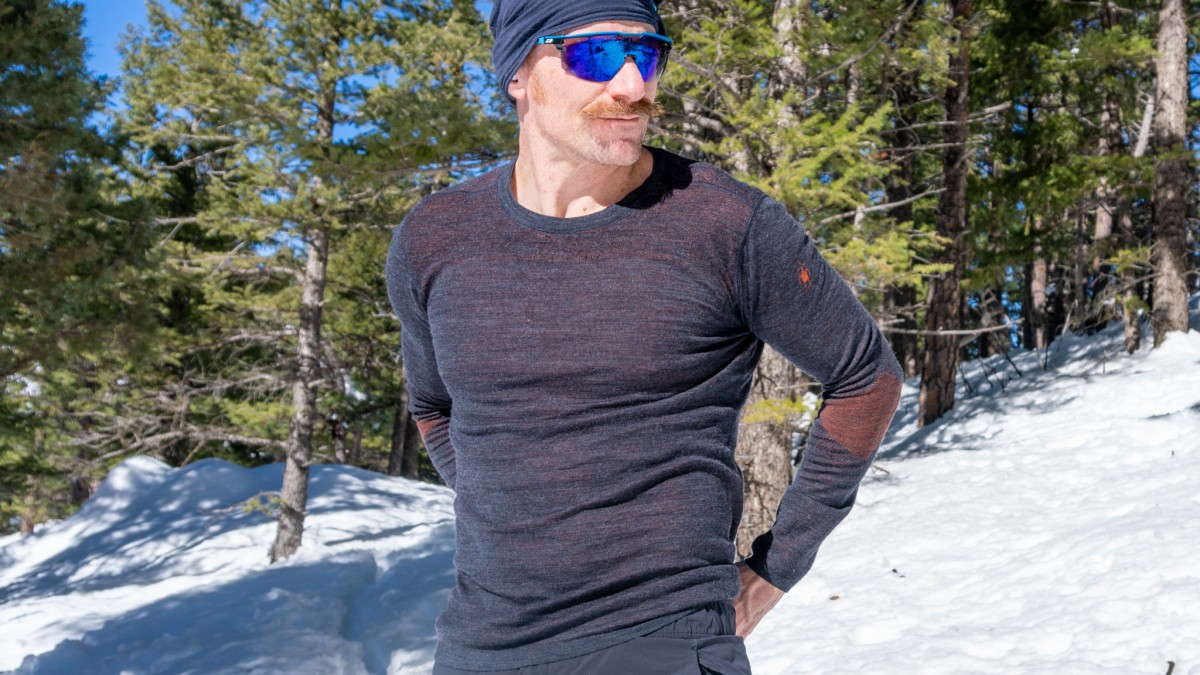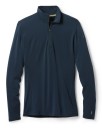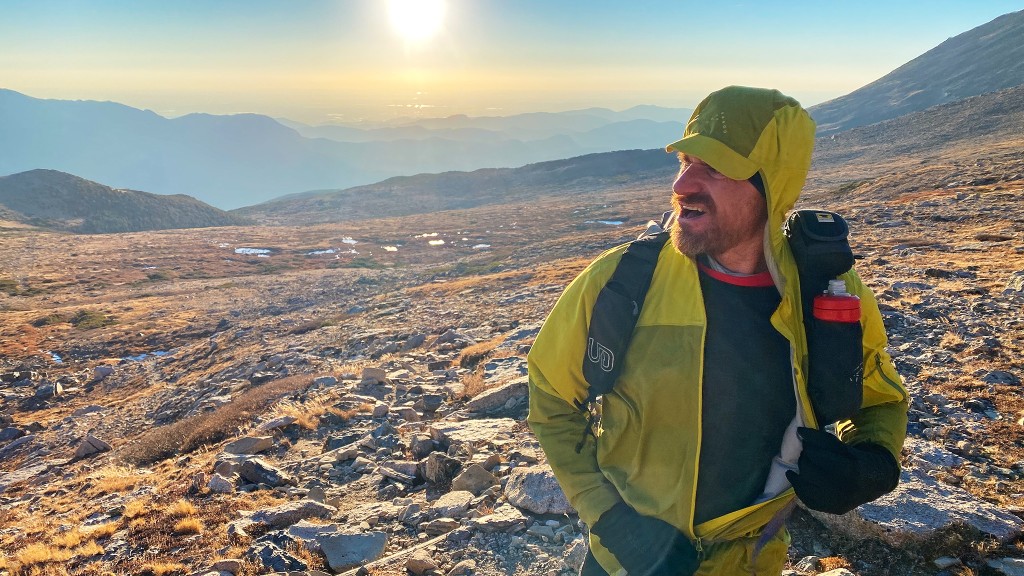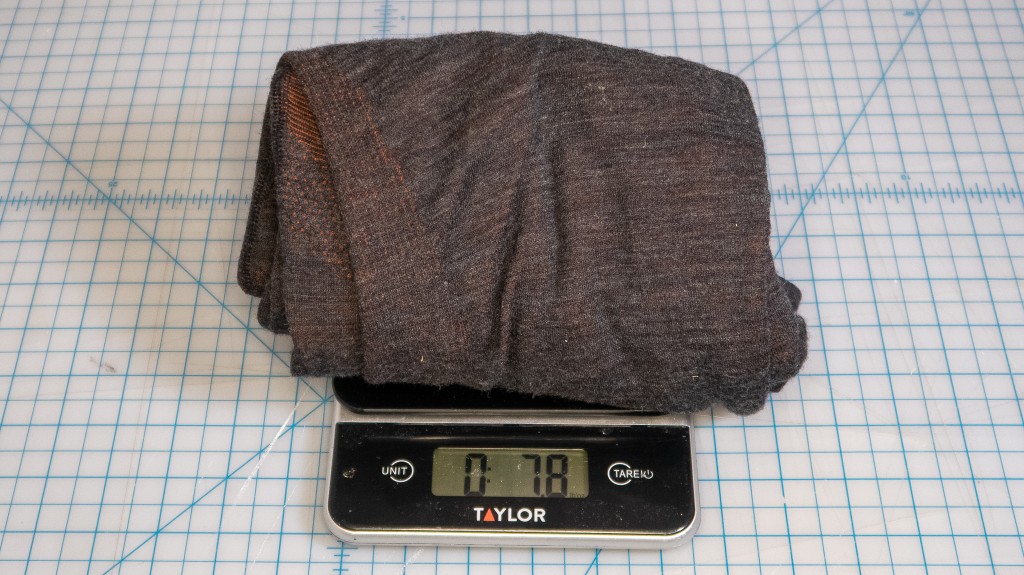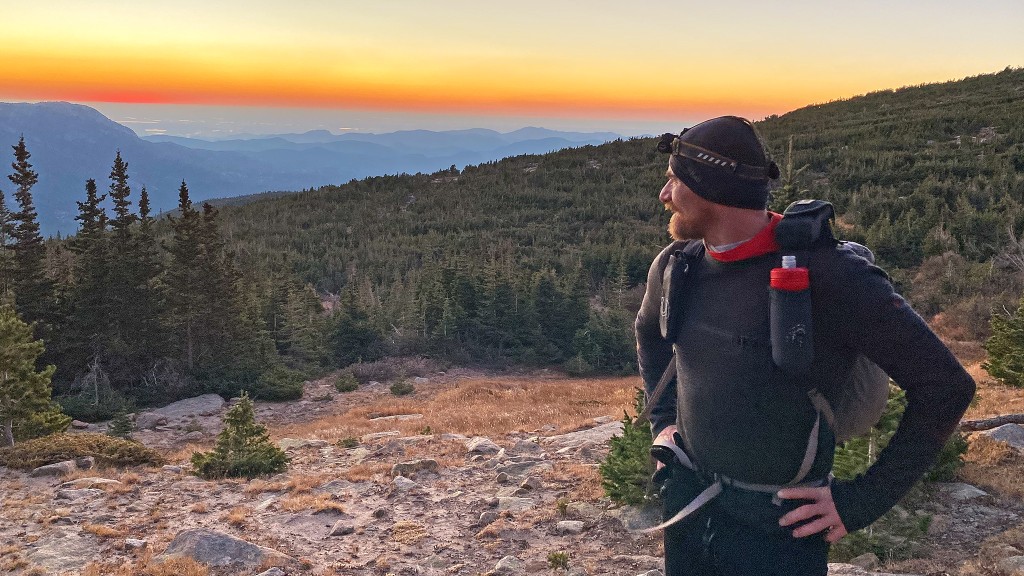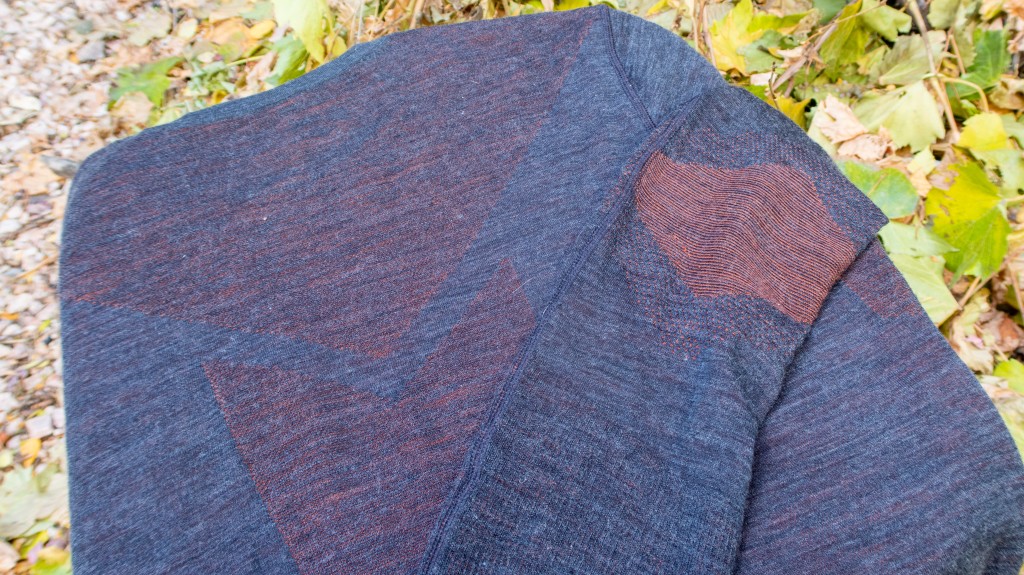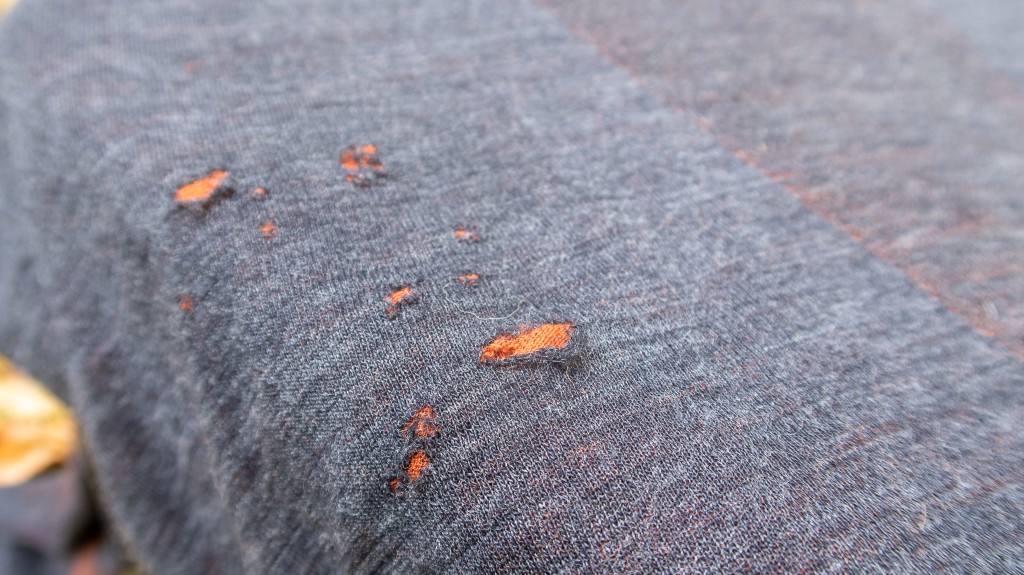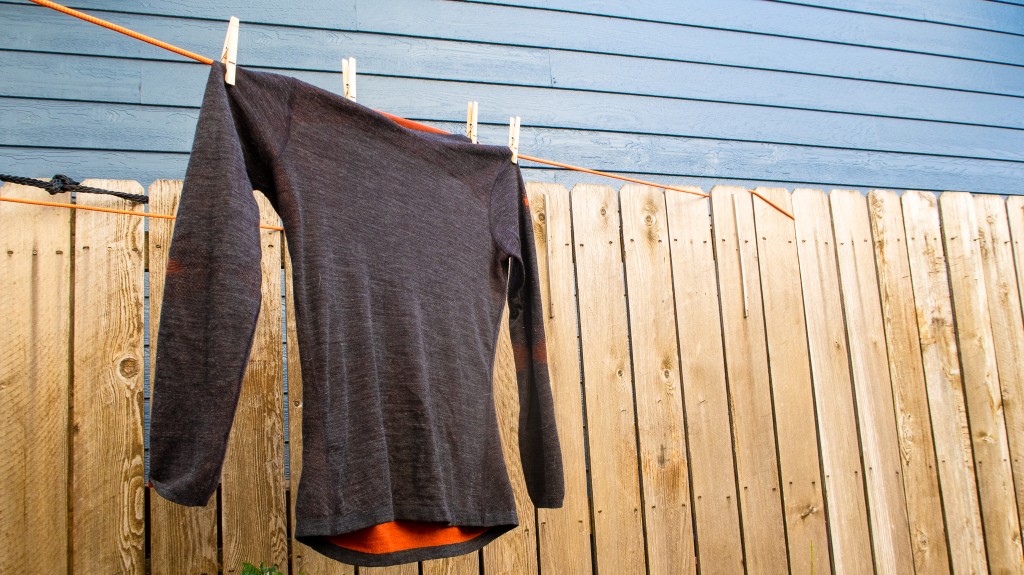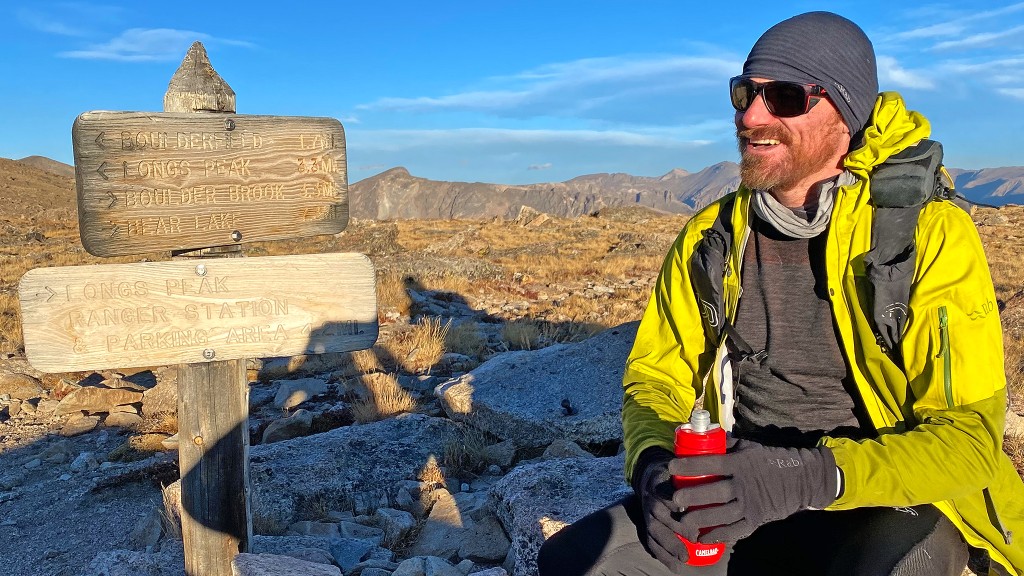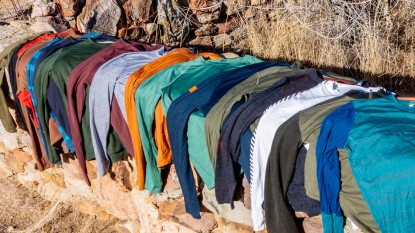Our Verdict
Compare to Similar Products
 This Product
Smartwool Intraknit Thermal Merino | |||||
|---|---|---|---|---|---|
| Awards | |||||
| Price | $130.00 at REI Compare at 2 sellers | $42.00 at Backcountry Compare at 3 sellers | Check Price at Backcountry Compare at 2 sellers | $60 List $29.83 at REI | $60 List $59.99 at Amazon |
Overall Score  |
|||||
| Star Rating | |||||
| Bottom Line | This base layer is made for those who spend time in the cold and need to keep warm, comfortable, and dry | If ultimate warmth over everything else is what you seek in a base layer, look no further | Other than the coldest of conditions, this base layer excels at almost any environment | Reach for this base layer when the temperature drops to wear underneath your jacket | A fine Merino base layer at an entry-level pricepoint |
| Rating Categories | Smartwool Intraknit... | Smartwool Classic T... | Black Diamond Solut... | REI Co-op Midweight... | Meriwool Merino 250... |
| Warmth (25%) | |||||
| Breathability (20%) | |||||
| Comfort and Fit (20%) | |||||
| Durability (15%) | |||||
| Drying Speed (10%) | |||||
| Layering Ability (10%) | |||||
| Specs | Smartwool Intraknit... | Smartwool Classic T... | Black Diamond Solut... | REI Co-op Midweight... | Meriwool Merino 250... |
| Measured Weight (Size Large) | 8.0 oz | 11.3 oz | 8.0 oz | 10.0 oz | 8.6 oz |
| Measured Shirt Length (Size Large) | 29 in | 28 in | 29 in | 29 in | 30 in |
| Material | 53% Merino wool, 45% polyester, 2% elastane | 100% Merino wool | Nuyarn: 78% Merino wool, 22% polyester | 92% recycled polyester / 8% spandex | RWS Merino wool |
| Fabric Weight Class | Midweight | Midweight | Lightweight | Midweight | Midweight |
| Fit | Slim fit | Semi-fitted | Slim fit | Semi-fitted | Slim fit |
| Thumb Loops | No | No | Yes | Yes | No |
| Air Dry Test | 45 min | 70 min | 45 min | 55 min | 65 min |
| Dryer Safe | No | Yes | No | Yes, tumble dry low | Not stated |
| Odor Control Fabric | Naturally odor resistant | Naturally odor resistant | Naturally odor resistant | None | Naturally odor resistant |
| UPF Sun Protection | None listed | None listed | None listed | 50 | 50+ |
| Seam Stitching | Flatlock seams (mesh inserts are seamless 3D) | Flatlock seams | Flatlock seams | Flatlock seams | Flatlock seams |
| Shoulder Top Seams | Yes | No | No | No | Yes |
| Drop Tail Hem | Yes | No | No | No | No |
| Available Cuts | Crew, 1/4 zip | Crew, 1/4 zip, hoodie | Crew, 1/2 zip hoody | Crew, 1/2 zip | Crew, 1/2 zip |
Our Analysis and Test Results
Of all the base layers we've tested, the Intraknit Thermal Merino comes with the most buzzwords. What sets this base layer apart from all others we've tested is the Intraknit fabric: this top is made with seamless panels of fabric that have slightly different characteristics. Fabric that's slightly thinner for better ventilation is located in areas one perspires the most. More flexible fabric is found on the elbows, explicitly designed to bend and flex without stretching out. The rest of the shirt is covered in warmer fabric. Sounds complicated, but the end product looks much like any other thermal base layer, and these panels are almost visually imperceptible unless you know what to look for. But wearing the Intraknit reveals all this engineering does what it says it will. The result is a warm, lively, and svelte for its warmth top, perfect for those who love to move fast in the cold.
Performance Comparison
Warmth
The Intraknit Thermal scored well in our warmth tests, especially for the overall weight of the top. This top will act similarly to a 200 g/sm Merino wool layer while weighing on the scale like a 175 g/sm base layer. The soft, Intraknit fabric is excellent at trapping pockets of air between its weaved pattern and visually looks less compressed than many other base layers we've tested.
This warmth isn't applied uniformly throughout the base layer. For the men's model, the center back, armpits, and top of the shoulders are ventilated more than the rest of the top. This is achieved using less dense fabric panels than what's used in the rest of the base layer. These panels are subtle, as the technology used means there aren't any seams between them. If you are sweaty like our main tester, the Intraknit fabric may be your ticket for a more enjoyable time being active in the cold.
Breathability
The woven tech of the Intraknit Thermal also allows it to be quite breathable. Both wool and polyester layer are hydrophobic, meaning they'll excel at their job of wicking moisture from the surface of your skin and depositing it onto the exterior of the fabric instead of letting it sit and soak in. The Intrakit weave is also looser than many of the wool and wool blends we've tested, allowing water to move through more easily.
In our real-world tests out in Rocky Mountain National Park on a cool Fall day, we found the Intraknit Thermal Merino worked well as a base layer as we were trudging up to above treeline. Mountain climbs from low altitude to out past treeline are sometimes tricky, as it's easy to overheat quickly in the trees where you're shielded from wind to weather, only to freeze above treeline care of a sweated-out baselayer. Thanks to staying reasonably dry, that didn't happen to us, and we could simply put on an outer layer in confidence.
Comfort and Fit
We'd describe the fit of the Intraknit as “body hugging.” It's a slim fit with fabric that has quite a bit of stretch and recoil strength. As we noted above for warmth, this layer has seamless panels where different fabric characteristics are expressed; some panels have better breathability and less warmth. Other panels, like on the elbows, allow better movement — and this will hopefully help with wear. No matter the panel, the 53% Merino wool, 45% polyester, and 2% elastane blend feels a little more flocculent and scratchier than other 150-200 g/sm wool/wool blend base layers we've tested.
Still, overall comfort is better than most, and we're happy that all actual seams on the Intraknit Thermal Merino are of the flatlock variety. There is also a drop tail hem, the sleeves are generously long, and the neckline is not overly tight. That said, some less-than-ideal patterning leaves some interesting seam junctions, including by the armpits. If you have larger shoulders, this may turn into a pressure point with this slim fitted base layer. A seam also runs on top of the shoulders, which can cause chafing for those who wear a heavy pack. We would have loved to see a design that removes the top shoulder seam by utilizing raglan sleeves or an additional top shoulder panel like we have noticed in some other base layers.
Durability
As is typical for most wool and wool blends that we've tested, durability is not this layer's strong suit. Even though almost half of the Intraknit is made up of tougher synthetic material, the weakest link is still the delicate wool. In our harsh abrasion test, we were able to rip open fairly large holes in the fabric — again: not uncommon for wool/wool blends of any thickness. Underneath a mid and outer layer would be the best place for this layer to live out a long, fruitful life.
In our tests, we found the quality and stitching to be top-notch, as we expect from this reputable brand. Multiple washings created a bit of fuzz on the surface, but nothing out of the ordinary for a Merino wool blend shirt. This would be a base layer you would want to absolutely avoid putting into the clothes dryer at any heated temperature, given both wool and elastane are part of the fabric blend. Wool has a tendency to both shrink and lose its form; elastane will lose its elasticity when exposed to heat.
Drying Speed
Our on-the-line drying speed test showed some of the best marks for this layer for wool and wool blends. The loose weave of the Intraknit easily gave up its moisture instead of locking it up underneath a tighter weave. Being one the loosest weaves of anything we've tested means that this base layer dries as fast as a lighter weighted fabric.
Drying speed is closely coupled to breathability; if the former is fast, often the latter has good performance as well, and this does seem to be the case for the Intraknit Thermal. As we've noted, this may be a great choice of base layer for those who sweat generously or find themselves traveling in more humid climates.
Layering Ability
The body-hugging design of the Intraknit Thermal Merino makes it comfortable on its own, and it also makes it perfect for laying on mid and outer layers. The slight stretch of the fabric helps keep pinch points and chafing at a minimum which is important in the cold when you're not in a great position to start peeling off layers just to adjust your base. The Intraknit seamless paneling also helps with layering. Since some panels have more breathability in key spots, others are more stretchy; this should altogether help with keeping the base layer comfortable to wear underneath your other layers. We personally found this baselayer nothing we had to think about at all — no news is good news, and we could instead focus on our outdoor adventures.
Additional features like long sleeves and a drop tail hem make riding up less of a problem. The fabric's exterior is softer and fuzzier than many of the base layers we've tested, and this can sometimes hook into mid-layers like gridded fleece, much like velcro. If you're using a mid-layer like that, this could be a base layer to avoid.
Should You Buy the Smartwool Intraknit Thermal Merino?
We think this top makes a great cold-weather base layer. If that's what you're looking for, pull the trigger. Just make sure the slimmer fit works with your body type, and plan to wear this base layer underneath more durable layers. Price could be a deciding factor: the Intraknit tech does not come at a discounted price. Do we think it's worth the MSRP? In the end, we do, especially for those looking for a little more performance out of their base layer, while still saving some grams.
What Other Base Layers Should You Consider?
For an even warmer layer, the Smartwool Classic Thermal Merino 1/4 Zip is our top choice. It does lack the Intraknit weaving but has a nice front quarter zipper to aid with breathability. For something just a little lighter, look at the Ortovox 185 Rock'N'Wool Long-Sleeve, which features similar soft Merino wool that lofts up somewhat similar to the Intraknit. For a more budget-friendly option, look no further than the Meriwool Merino 250 Long Sleeve, which will give you similar warmth with the compromise of being a little less durable, and a little heavier.


